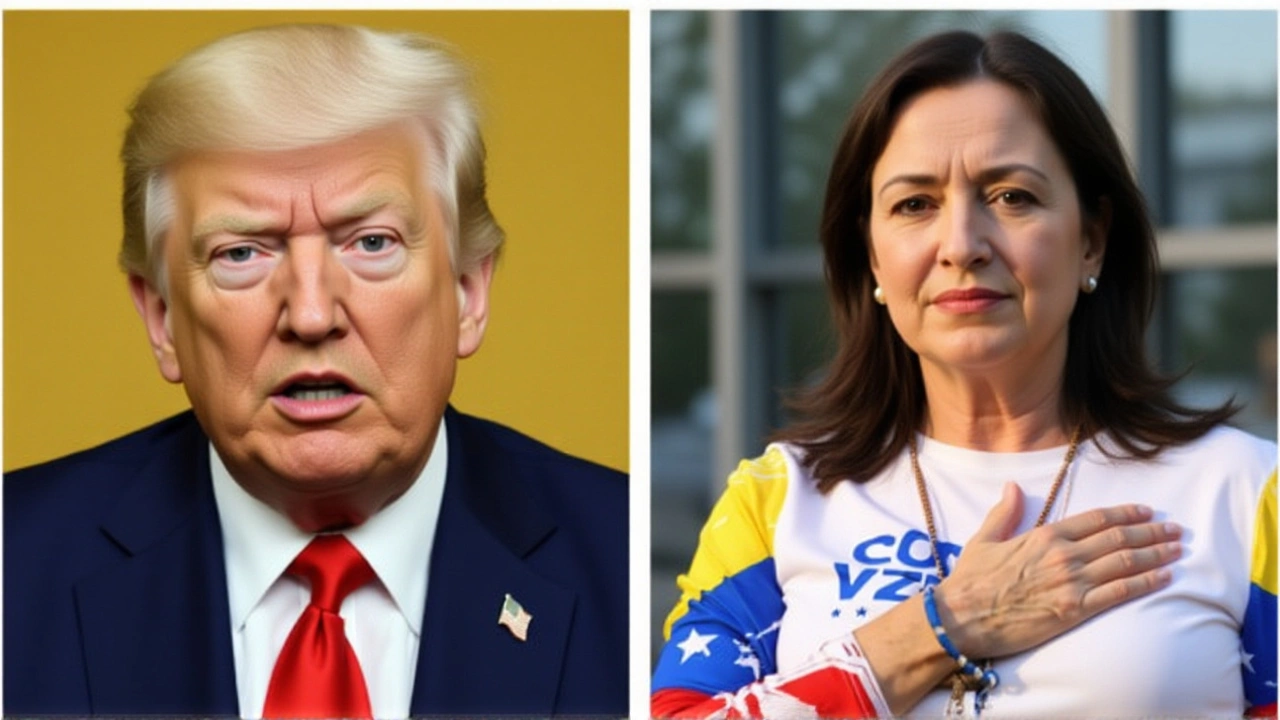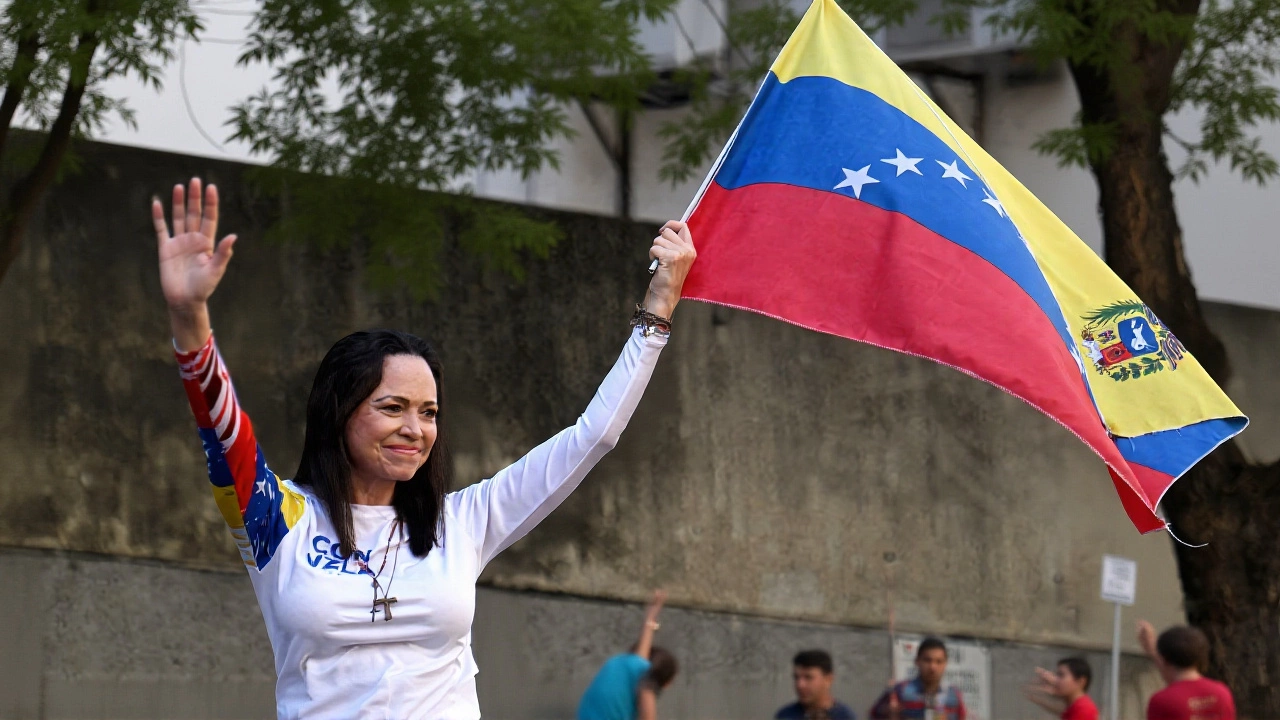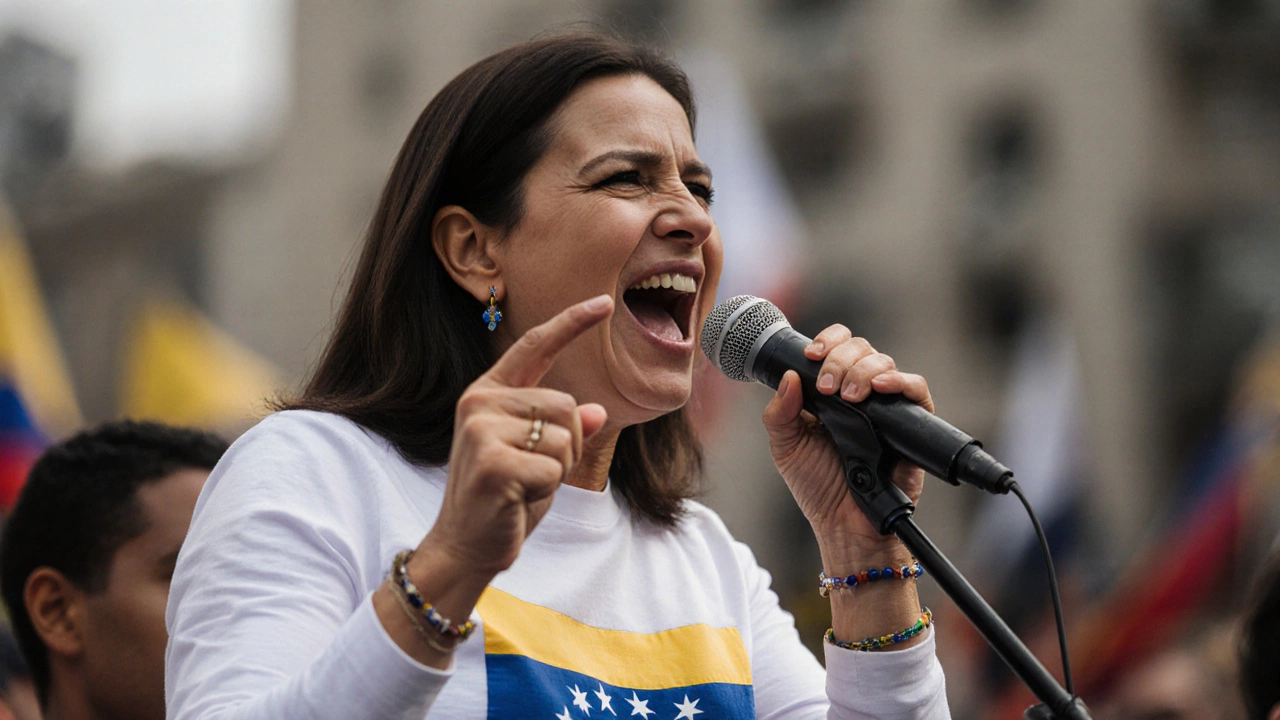When María Corina Machado, Venezuelan opposition leader and founder of the Unitary Platform learned she had won the Nobel Peace Prize on 10 October 2025, the world took notice. The announcement came from the Norwegian Nobel Committee during a press briefing at the Nobel Institute in Oslo, Norway, at 7:44 PM UTC.
Background: Machado’s Political Journey
Born in 1968, Machado first entered public life in 2000 when she co‑founded Súmate, a civil‑society group pushing for electoral transparency. The Supreme Tribunal of Justice declared Súmate illegal in August 2005, foreshadowing the repression she would face for the next two decades.
She later served as a deputy in the National Assembly, where she earned a reputation for refusing to bow to the ruling United Socialist Party. In 2018, the National Electoral Council barred her from holding public office on alleged corruption charges that most international monitors dismissed as politically motivated.
Undeterred, Machado launched the Unitary Platform in 2020, uniting dozens of opposition parties under a single banner. Her campaign for a peaceful transition to democracy has been punctuated by arrests of close aides—most notably her chief of staff, Roberto José Enríquez, who has been detained at SEBIN headquarters since 2023.
The Nobel Announcement
The Nobel reveal was delivered by Jørgen Watne Frydnes, spokesperson for the committee. He said, “The Nobel Peace Prize for 2025 goes to a brave and committed champion of peace, to a woman who keeps the flame of democracy burning amidst a growing darkness.” He added that Machado satisfies all three criteria in Alfred Nobel’s will: promoting fraternity, reducing the likelihood of war, and advancing peace‑building.
According to the committee’s statistics, 351 candidates were evaluated—one of the highest tallies in the prize’s 124‑year history. Machado’s win marks the first time a Venezuelan has received the award since the 1952 shared prize involving Colombian statesman Alberto Lleras Camargo.
- Prize amount: 11.0 million Norwegian kroner (≈ $1.05 million USD).
- Ceremony date: 10 December 2025 at Oslo City Hall.
- Nomination filed on 1 February 2024 by a bipartisan U.S. congressional group.
Reactions from Caracas and Washington
President Nicolás Maduro Moros denounced the award as “an imperialist plot” in a televised address from Miraflores Palace at 9:15 PM VET. He warned that foreign interference would only deepen Venezuela’s “sovereign struggle.”
Across the Atlantic, U.S. Secretary of State Marco Rubio praised the decision, calling it “a victory for democracy fighters worldwide.” He reiterated Washington’s commitment to uphold sanctions—47 rounds targeting 217 officials and 89 entities since January 2025.
The European Union, represented by High Representative Josep Borrell Fontelles, announced an acceleration of €500 million in humanitarian aid to opposition networks, to be disbursed by the end of 2025.

Implications for the Venezuelan Opposition
Machado’s award could reshape the calculus for both the opposition and the regime. International donors may leverage the Nobel spotlight to pressure Maduro’s government to release political prisoners—currently estimated at 12,743 by the Organization of American States.
Within Venezuela, the prize is likely to embolden protest organizers while also intensifying surveillance. SEBIN officials have already increased patrols around Machado’s residence in the Plaza Caracas district.
Legal experts note that Machado’s upcoming treason trial—scheduled for 15 November 2025 at the Palace of Justice—could become a diplomatic flashpoint. If the court upholds the charges, it may trigger new sanctions; if she is acquitted, it could open space for negotiated dialogue.
What’s Next: Ceremony and Legal Battles
The Nobel ceremony on 10 December will be attended by royalty, former laureates, and a small delegation from Venezuela, though security concerns may limit Machado’s travel. Should she be unable to attend, the committee has indicated a proxy can receive the medal on her behalf.
Meanwhile, her defense team, led by attorney Ana María García, plans to appeal any conviction from the November hearing. They argue that the treason charges violate international human‑rights norms and that the trial lacks due process.

Historical Context: Nobel Awards in Latin America
The Nobel Peace Prize has rarely landed on Latin American soil. After the 1952 shared prize, the next regional recipient was Colombian President Juan Manuel Santos in 2016 for his role in ending the civil war with the FARC. Machado’s win follows a pattern of the committee recognizing figures who champion democratic transitions in entrenched authoritarian settings.
Analysts suggest the Nobel decision reflects a broader European‑American strategic pivot toward the Global South, where democratic backsliding has accelerated since the early 2020s. Whether the prize will translate into tangible political change in Venezuela remains to be seen.
Frequently Asked Questions
How does the Nobel award affect Venezuelan political prisoners?
The award shines a spotlight on the 12,743 detainees documented by the OAS, raising diplomatic pressure on Caracas. EU aid tied to human‑rights benchmarks may compel the regime to release low‑level prisoners, though high‑profile opposition figures like Machado remain at risk.
What legal hurdles could Machado face before the Nobel ceremony?
Her treason trial set for 15 November could result in a conviction that blocks travel. Her lawyers intend to appeal any verdict, arguing violations of due process. If the court upholds the charges, she may be barred from leaving Venezuela, prompting the committee to accept a proxy.
Why did the Norwegian Nobel Committee choose a Venezuelan candidate this year?
Committee spokesman Frydnes cited Machado’s perseverance in a “growing darkness.” The decision aligns with the prize’s tradition of rewarding non‑violent resistance in nations where democratic institutions are under siege.
What role did the United States play in Machado’s nomination?
A bipartisan group of Florida lawmakers, led by Secretary of State Marco Rubio, submitted her nomination on 1 February 2024. Their backing signaled Washington’s strategic interest in supporting democratic forces in Venezuela.
Will the Nobel Prize money be used for Venezuelan aid?
Machado has said the 11 million kroner will fund civil‑society projects and legal defense for political prisoners. However, the Venezuelan government may try to seize the funds, prompting international watchdogs to monitor disbursement.
